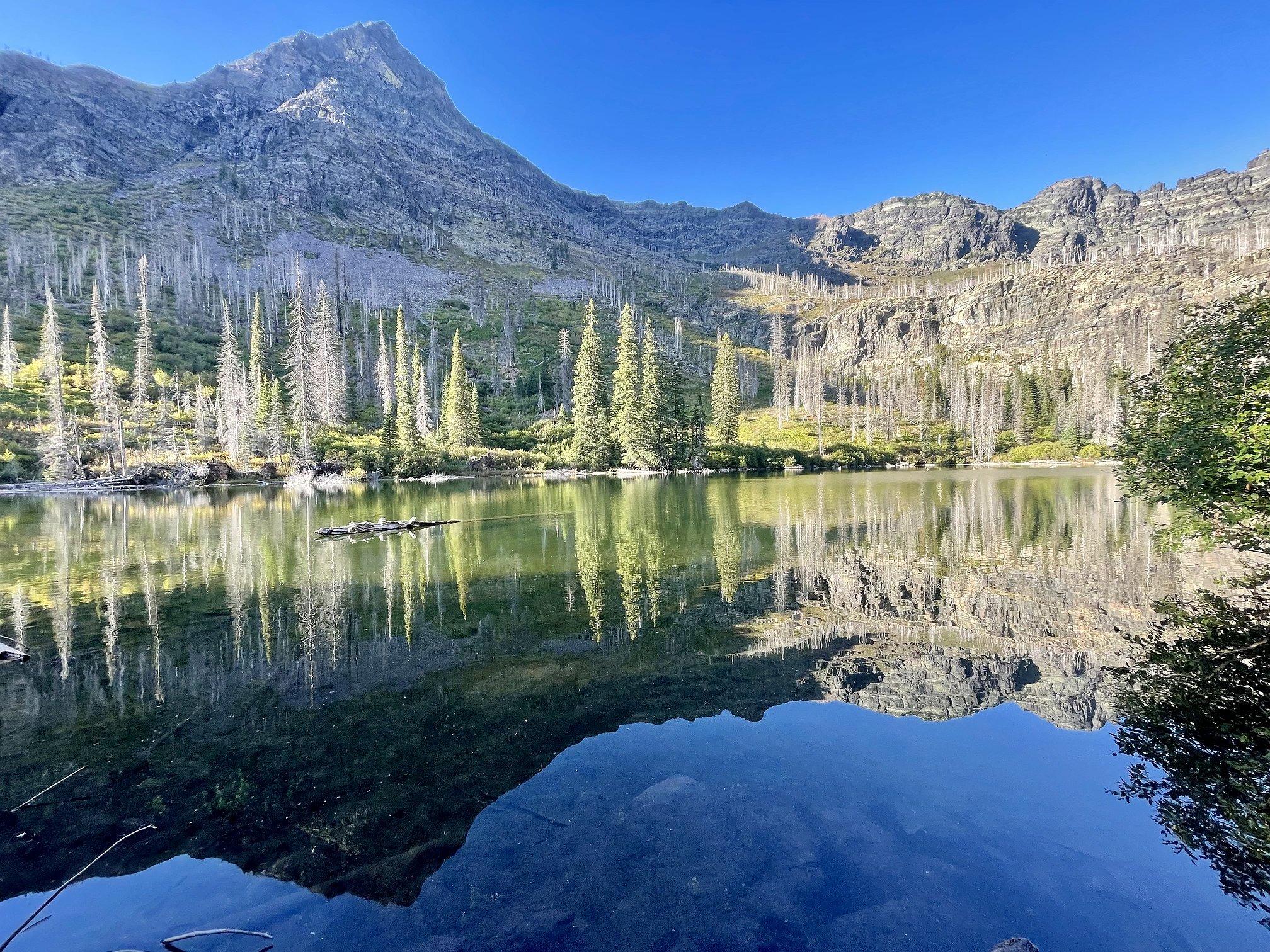In search of Glacier's Upper Snyder Lake
Turns out, Snyder Lake isn't the main attraction of Glacier National Park's Snyder Lake Trail.
Don't get me wrong, it's an acceptable alpine lake -- more of an alpine pond -- serving as the final destination of the moderate jaunt from Lake McDonald Lodge. It's just not in the same realm as notorious Glacier attractions like Iceberg, Cracker or Grinnell lakes.
Given Glacier Park's ridiculously high standard for mountain lakes, Snyder scores a "meh" on a scale of "womp, womp" to "oohs and aahs."
The real payoff on this trail is the impressive cirque of prominent peaks that tower over the basin.
Standing at the foot of Snyder Lake, a shoulder of Mount Brown juts out from the north like the prow of the Titanic. Brown’s ridgeline curves before abruptly rising into Little Matterhorn's sheer east face, while Mount Edwards' broad west flank seems to overhang the entire amphitheater.
The setting goes fully HD when evening alpenglow paints the mountain trifecta, making Snyder Lake an outstanding overnight camping destination that requires relatively little effort or planning.
In fact, it was the perfect launching pad for my 10-year-old daughter's foray into backpacking. After ticking off Glacier's prerequisites to secure a wilderness permit, we set out for our campsite at about 1 p.m. on a recent Saturday.
It had been a minute since I had ventured up the Sperry Chalet Trail and I was surprised to see how much understory growth had rejuvenated the forest after it was scorched in 2017's devastating Sprague Fire that burned down the historic chalet. Charred trunks line the route like towering tombstones as the Snyder Lake Trail forks off to the east and traverses above the namesake creek.
It took us about 2 hours to pound out the approximately 4.3 miles and 2,200 feet of elevation to the campground.
After hanging our food bag and setting up the trusty REI Half Dome tent, we toyed with the idea of going for a swim. The late-summer sun felt warm, but we quickly chickened out after wading into the chilly Sperry Glacier fed water.
Instead, we returned to a huckleberry patch we spotted on the hike in and snared a mug full, along with a helping of thimbleberries that proliferated around our tent spot. We boiled the concoction and enjoyed a nice mountain berry zinger tea while glassing the cliffs for any signs of wildlife. No goats, no sheep and no bears.
Before long, the sun slipped behind Mount Brown and evening gave way to an astrological sea. I counted 13 satellites and one shooting star before dozing off.
After packing up the next morning, we set out on a little adventure hike to find the intriguing Upper Snyder Lake that is hidden in the basin above the campground. Looking at my topo map, it seemed like a straightforward approach around the cliffs and waterfall that protect Snyder Lake. Shouldn't be more than 20 minutes, I figured.
And it probably would have taken that long if there was a trail. But without a clear path in sight, we quickly found ourselves neck high in brush, wading through a jungle of fern gullies and alder traps. It was slow moving, but we pressed on.
After a little scramble across a talus field, we finally emerged on the plateau that led to Upper Snyder. We envisioned its ideal setting with turquoise water and rocky shoreline.
Finally, it came into view.
Tucked at the base of Little Matterhorn's dizzying cliffs was yet another "meh" alpine lake, just like its sister below. Fine, even pretty, but nothing spectacular.
Even so, the effort seemed worth it. We sipped water and took in the view before turning back.
As we returned to our campsite scratched up and burning from a nasty patch of stinging nettles, I reflected on a familiar saying about the journey being more important than the destination.
Spending uninterrupted time with my daughter and sharing in the joys of a good Glacier bushwhack — that makes up for a “meh” alpine lake any day.









